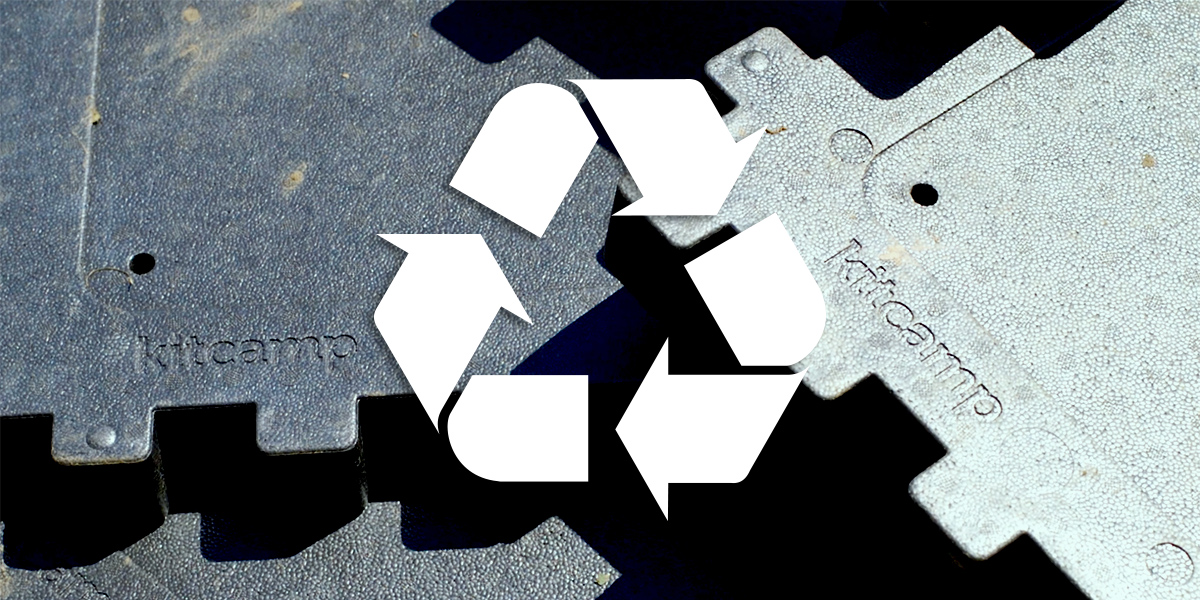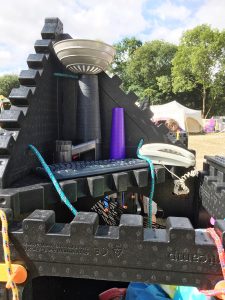Moving towards a circular economy

Plastic, plastic everywhere. It certainly seems to be the case when you consider that an estimated 9 million tons of it end up in the ocean each year[1]. In 2015, 448 million tons of plastic was produced[2]. In the last 15 years we have produced nearly half of all the plastic that has ever been manufactured[3]. Today, nearly half of the total global plastic waste comes from packaging materials, and the majority is neither recycled, nor incinerated.
The real culprit in this is not plastic itself but human attitudes to consumption and waste; in particular our use of single-use plastics. We have lazily abused the ease of one-way production, and not thought twice about the life cycle. Globally, 18% of plastic is recycled. Europe recycles 30%, China 25% and the US only 9%[4].
Quite simply, our behaviour needs to change, from our systemic endorsement of a one-way economy to a circular, sustainable one.
The product’s life-cycle is as important… as the functional aims of the product itself.
A considered approach.
The life-cycle
From the outset, one of the fundamental principles of Kitcamp was the product life-cycle. How can we produce a product that meets the needs of our product goals, and also answers serious environmental and ethical questions – can I reuse it, recycle it and is it non-toxic?
The product’s life-cycle is as important to us as the functional aims of the product itself. In the context of the current global challenges, it’s a simple principle that manufacturing businesses and consumers should adopt. Let’s take responsibility for our actions, and before governments force us to act.
The reasons for change are stark, and failure to shift towards a circular economy will bear disastrous consequences.
Can I reuse it, recycle it and is it non-toxic?
Product Development Goals
Our ambition was to create a loose parts, child-led play system. To do this effectively we required a material that was:
- light enough for children to manipulate, yet
- strong enough to create weight-bearing constructions,
- non-toxic, and
- made from natural or recycled material, or at least be recyclable.
Life-cycle benefits
These strict criteria immediately reduced our options, but with years of persistence, and the assistance of the eco-innovation team at Sprout Design, it led us to expanded polypropylene (EPP). A material without which Kitcamp could exist. It is a polymer, yet the product and life-cycle benefits are clear to see.
- The light weight of the loose panels allow children to develop their creations, reinforcing the importance of child-led free play in learning.
- The light weight reduces injury, in case of falling on children, as opposed to wooden panels (in our early models) or blocks.
- The material and moulding process allowed for the precise engineering required for construction and safety.
- EPP is used for crash impact in motor vehicles, therefore it’s a strong, impact absorbing material.
- A reduction in CO2 from transport due to its light weight. In fact, EPP manufacturer Arpro’s recent life-cycle analysis of EPP used as a seat component evidenced an environmental benefit to impact ratio of 12:1[5].
- Kitcamp is manufactured in the UK, further reducing the CO2 footprint.
- It’s not a single use plastic.
- EPP is non-toxic, and chemically inert.
- Kitcamp’s manufacturing process is chemical free and uses only heat and steam. There are no glues or preservatives added, as used in wooden materials.
- It can be fully recycled. When recycled it is used as hidden parts in caravans and multi-use packaging that requires EPP’s thermal insulation properties.
The result is a product that met our ambition of offering engaging and constructive child-led learning through play opportunities, whilst being non-toxic for children and the environment, and fully recyclable.

Kitcamp with Scrap Store loose parts for improvised role-play.
One of the creative attributes of Kitcamp is improvisation, which means including everyday items in the play experience. We’re thankful for organisations, such as the Wiltshire Scrap Store, that provide unused, junk materials for play, perfect for loose parts junk modelling and the myriad of role-play opportunities. So, instead of plastic junk ending up in landfills, or the ocean, it’s given new life and reused for creative play.
What you can do (with minimal effort).
It’s not only businesses that should demonstrate the importance of change, we can too.
National Geographic recently outlined six simple steps you can take that have little impact on you, yet can make a difference. All revolve around the detrimental impact of single use plastics.
- Give up plastic bags – use reusable bags.
- Skip Straws – use paper ones, unless there are medical reasons.
- Don’t use plastic bottles – invest in a refillable bottle. Around the world nearly a million plastic beverage bottles are sold every minute.
- Avoid plastic packaging.
- Recycle – we don’t recycle enough. Globally only 18% of plastic is recycled.
- Don’t litter – this includes cigarette butts.
If we change our behaviour, treat our biosphere with the respect it deserves we can all surely influence the direction of a globally aware, sustainable economy.
